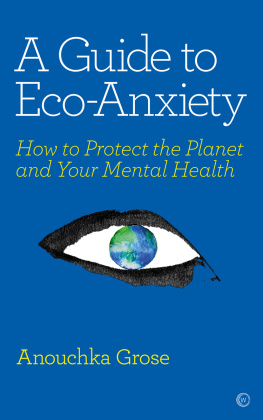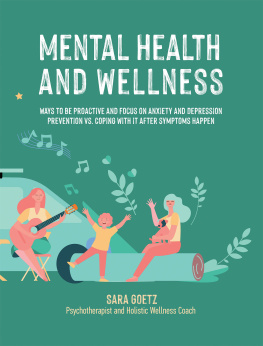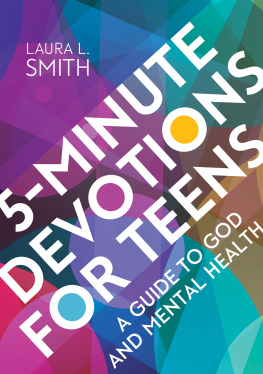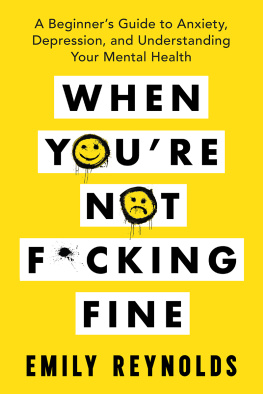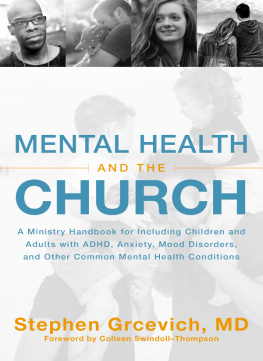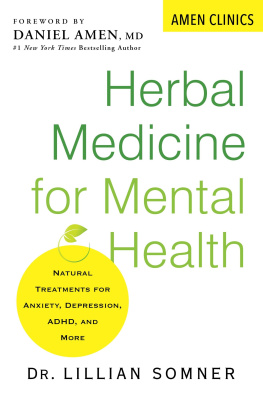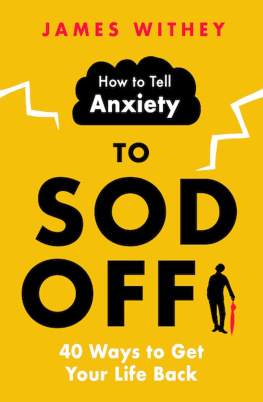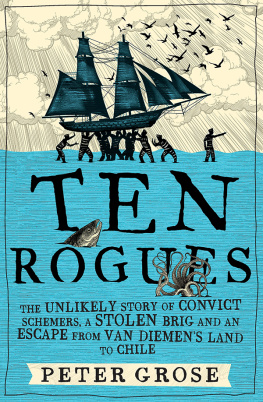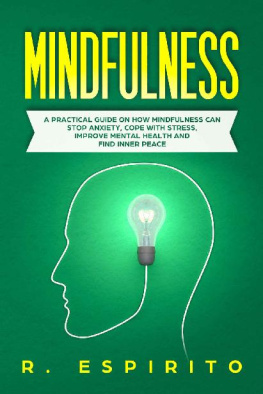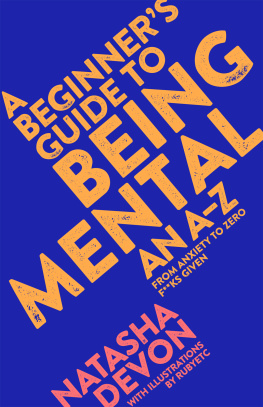Anouchka Grose - A Guide to Eco-Anxiety: How to Protect the Planet and Your Mental Health
Here you can read online Anouchka Grose - A Guide to Eco-Anxiety: How to Protect the Planet and Your Mental Health full text of the book (entire story) in english for free. Download pdf and epub, get meaning, cover and reviews about this ebook. year: 2020, publisher: Watkins Media, genre: Religion. Description of the work, (preface) as well as reviews are available. Best literature library LitArk.com created for fans of good reading and offers a wide selection of genres:
Romance novel
Science fiction
Adventure
Detective
Science
History
Home and family
Prose
Art
Politics
Computer
Non-fiction
Religion
Business
Children
Humor
Choose a favorite category and find really read worthwhile books. Enjoy immersion in the world of imagination, feel the emotions of the characters or learn something new for yourself, make an fascinating discovery.
- Book:A Guide to Eco-Anxiety: How to Protect the Planet and Your Mental Health
- Author:
- Publisher:Watkins Media
- Genre:
- Year:2020
- Rating:4 / 5
- Favourites:Add to favourites
- Your mark:
- 80
- 1
- 2
- 3
- 4
- 5
A Guide to Eco-Anxiety: How to Protect the Planet and Your Mental Health: summary, description and annotation
We offer to read an annotation, description, summary or preface (depends on what the author of the book "A Guide to Eco-Anxiety: How to Protect the Planet and Your Mental Health" wrote himself). If you haven't found the necessary information about the book — write in the comments, we will try to find it.
Anouchka Grose: author's other books
Who wrote A Guide to Eco-Anxiety: How to Protect the Planet and Your Mental Health? Find out the surname, the name of the author of the book and a list of all author's works by series.
A Guide to Eco-Anxiety: How to Protect the Planet and Your Mental Health — read online for free the complete book (whole text) full work
Below is the text of the book, divided by pages. System saving the place of the last page read, allows you to conveniently read the book "A Guide to Eco-Anxiety: How to Protect the Planet and Your Mental Health" online for free, without having to search again every time where you left off. Put a bookmark, and you can go to the page where you finished reading at any time.
Font size:
Interval:
Bookmark:


This edition first published in the UK and USA in 2020 by
Watkins, an imprint of Watkins Media Limited
Unit 11, Shepperton House
8993 Shepperton Road
London N1 3DF
Design and typography copyright Watkins Media Limited 2020
Text copyright Anouchka Grose 2020
Anouchka Grose has asserted her right under the Copyright, Designs and Patents Act 1988 to be identified as the authors of this work.
Excerpt on page 27 from When Death Takes Something From You, Give it Back , by Naja Marie Aidt, Quercus Publishing 2019. Quoted with permission
All rights reserved.
No part of this book may be reproduced or utilized in any form or by any means, electronic or mechanical, without prior permission in writing from the Publishers.
1 2 3 4 5 6 7 8 9 10
Typeset by JCS Publishing Services Ltd
Printed and bound in the United Kingdom by
A CIP record for this book is available from the British Library.
ISBN: Paperback 978-1-78678-429-2
ebook978-1-78678-442-1
www.watkinspublishing.com
Anouchka Grose is a BritishAustralian psychoanalyst and author, who lectures at the Centre for Freudian Analysis and Research. She is the author of two novels, as well as several non-fiction books. She writes for many publications, including the Guardian, and discusses psychoanalysis and current affairs on the radio, appearing on shows such as BBC Radio 4s Womans Hour. Before training as a psychoanalyst, she studied fine art and was a guitarist and vocalist with the band Terry, Blair & Anouchka.
By the same author:
No More Silly Love Songs: A Realists Guide to Romance
Are You Considering Therapy?
From Anxiety to Zoolander: Notes on Psychoanalysis
For Dot, who does so much to make a difference
What is right to be done cannot be done too soon.
Jane Austen, Emma
CONTENTS
FOREWORD
Ed Gillespie
In the dark times, will there also be singing? Yes, there will also be singing, about the dark times.
Bertolt Brecht
In his Motto to the Svendborg Poems published in the spring of 1939, Bertolt Brecht wrote: In the dark times, will there also be singing? Yes, there will also be singing, about the dark times. As a climate activist for the last quarter of a century those words speak to me deeply. The grimly predictable white swan of the climate crisis has descended upon us, despite our best efforts, leaving many of us feeling totally hopeless. When the simple, linear, foreseeable trends in Australia reduced rainfall, increased temperatures, drought, austerity cuts to forestry and fire services combined through tipping points into complex, non-linear, chaotic and uncontrollable outcomes, in the form of raging mega-fires, if you werent getting at least a little bit anxious before that, afterwards you were certainly paying attention.
Pyro-cumulonimbus entered our lexicon, huge black firefuelled thunderclouds whose lightning strikes generate further fires, and we watched horrified as an area the size of Austria burned, killing half a billion animals, dozens of people and razing thousands of homes, lives and dreams to the ground. We perhaps began to realize then that nothing would ever quite be the same again. And then along came COVID-19 just to ram the message home a little harder.
As I write this, we are a month into lockdown in London. Two hundred thousand people have died globally, and hundreds of millions are housebound. Multiple strains of virus are on the loose, making a vaccine look elusive, and huge questions are hanging in the air, like the smoke after the Australian fires, around what sort of world we will inhabit on the other side of this crisis, what form of recovery we will need, and how to rebuild for whats next?
But what if this is not an isolated crisis? What if all these crises are actually inextricably linked? What if this is actually a cascade of interconnected and interdependent crises unfolding in both foreseeable and unforeseeable ways? A former colleague used to conduct a somewhat facile thought experiment with audiences, asking them if they could wave a magic carbon wand to make climate change go away, would they? When some people demurred, she would cite this as environmentalists wanting something to hate, as if there was something wrong with environmentalism. But what if the truth is that even if the magic carbon wand existed (spoiler alert: it doesnt), even if all the planet-stewing slew of emissions we have emitted in an explosive blink of geological time could be instantly removed, even if the oceans werent acidifying dangerously enough to insidiously dissolve the calcareous homes of the marine creatures around them (less in your face than a 50-foot wall of forest fire racing towards you at 50 miles an hour, but ultimately no less deadly), even if that could all be dramatically, impossibly fixed in a moment we would still possibly be fucked?
The truth is wed continue to be chewing our way through the last wild places on the planet, and in doing so also chewing our way through bush-meat primates, undercooked bats or pangolins, in turn unleashing further waves of zoonosis, like the HIV/AIDS, Ebola, SARS, MERS and now COVID-19. We would still be facing the sixth mass extinction. We would still be destroying this unique (as far as we know) intergalactic Eden and the wider, wilder family of our shared natural heritage, and for what? To defend our right to consume? To dangle a cruel, false promise to the other six billion on the planet that the current lifestyles of the top billion are somehow achievable and replicable for all through sustainability?!
Hang on! I hear you thinking. This is supposed to be a book about coping with eco-anxiety. Whos this guy? Hes just making me more depressed! And my first response to that is: good. Welcome to the difficult, horrible, painful, potentially fatal existential reality in which we find ourselves. And this is why Anouchka Grose has written such a profoundly important and timely book to help guide us all through this darkest of times. We owe it to ourselves to be honest about the fact this really might not end well collectively, and individually the raw truth is that were all going to die, at some point. No one here gets out alive, as Jim Morrison sang.
We humans are rather adept at the denial of our inevitable personal death. We numb ourselves with drugs and alcohol, pray for an after-life, or prop up our self-esteem through the contrived immortality systems of consumerism and shopping, as if life was a competition in which he who dies with the most toys wins. We construct defences of identity for our own in-groups exceptionalism that drive the dangerous populism of our uniquely entitled we, that allows us to other others to feel better about ourselves, and share pacifying myths excusing us of our own historical horrors of colonialism and slavery. Denial, distraction and disavowal were pretty good on all these.
The cults of egotism, individualism and control, our arrogant hubristic heroism, have got us into this mess, and I believe it is going to take something very different, if not to get us entirely out of it, but to at least get us through it with the best of our humanity intact.
And lets be clear, we are also lovely. The empty streets, sports stadia and transport hubs in cities around the world right now speak to the biggest, most-selfless act of global solidarity we may ever see in our lifetimes. People are staying home to protect others: the weak, the vulnerable, the carers. We are connecting with neighbours we have never met before, rapidly building mutual aid networks. Few have questioned the enormous sacrifices being made economically by so many, because they can see the direct benefit on the lives of their fellow citizens. Were acting together, at speed and scale in shared purpose for the common good. Its impressive.
Next pageFont size:
Interval:
Bookmark:
Similar books «A Guide to Eco-Anxiety: How to Protect the Planet and Your Mental Health»
Look at similar books to A Guide to Eco-Anxiety: How to Protect the Planet and Your Mental Health. We have selected literature similar in name and meaning in the hope of providing readers with more options to find new, interesting, not yet read works.
Discussion, reviews of the book A Guide to Eco-Anxiety: How to Protect the Planet and Your Mental Health and just readers' own opinions. Leave your comments, write what you think about the work, its meaning or the main characters. Specify what exactly you liked and what you didn't like, and why you think so.

